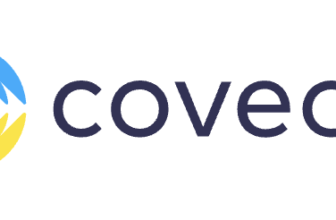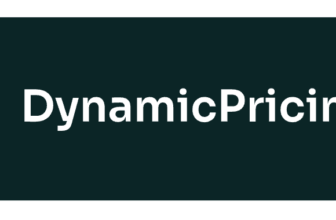Looking to supercharge your inventory management and demand forecasting?
Discover how Blue Yonder’s AI-driven solutions can transform your supply chain operations. Our in-depth review breaks down the powerful features, performance, and how it stacks up against the competition. Whether you’re a retail giant or a logistics leader, find out if Blue Yonder is the right tool to keep your shelves stocked and your customers happy.
Dive in now and see how you can optimize your business with cutting-edge technology!
Key features include
Features and Functionality
Key features include:
- AI-Powered Demand Forecasting: Blue Yonder predicts future product demand with high accuracy by analyzing various data points. This helps businesses avoid overstocking or understocking.
- Inventory Optimization: The solution optimizes stock levels across all locations, ensuring the right quantity of products is available where needed, reducing carrying costs.
- Real-Time Visibility: Businesses can monitor inventory levels in real-time, allowing for quick adjustments in response to changes in demand.
HighlightBlue Yonder’s core features revolve around its AI-driven demand forecasting and inventory management capabilities. It uses machine learning algorithms to analyze historical data, current market trends, and external factors to predict future demand accurately. The platform also offers real-time visibility into inventory levels across multiple locations, enabling businesses to make informed decisions about stock replenishment and distribution.
Specific examples include
Performance and Effectiveness
InsightBlue Yonder performs exceptionally well in its primary functions, providing businesses with actionable insights that lead to more efficient inventory management. The demand forecasting accuracy significantly reduces instances of stockouts and excess inventory, leading to cost savings and improved customer satisfaction. Many users have reported a noticeable improvement in their supply chain efficiency after implementing Blue Yonder, particularly in managing seasonal fluctuations in demand.
Weighing the balance
Pros and Cons
Pros
- High Accuracy in Demand Forecasting: The AI-driven forecasts are highly accurate, helping businesses to maintain optimal inventory levels.
- Comprehensive Inventory Management: Blue Yonder offers robust tools for managing inventory across multiple locations.
- Real-Time Data: Provides up-to-date inventory information, enabling swift decision-making.
- Scalability: Suitable for both small businesses and large enterprises.
Negatives
- Complex Implementation: Initial setup and integration can be complex and time-consuming.
- High Cost: The advanced features come with a premium price tag, which may not be feasible for smaller businesses.
- Learning Curve: The platform has a steep learning curve, particularly for users unfamiliar with AI-driven solutions.
Alternative tools
More Automation Options
Looking to explore more automation options? Discover alternative tools to Blue Yonder that can help streamline your operations and boost productivity.
Automation Anywhere is a powerful RPA (Robotic Process Automation) tool designed to automate repetitive tasks, particularly those involved in data entry and reconciliation.
Rossum Most functional
Rossum is an AI-driven platform designed to extract and validate data from documents such as invoices and purchase orders. It’s tailored to reduce manual data entry significantly and improve accuracy.
Hypatos Processing AI is a robust AI tool designed to automate domain-specific tasks in document processing.
The user’s journey
User Experience
Ease of Use:Despite its powerful capabilities, Blue Yonder has a steep learning curve, especially for first-time users. The user interface is designed for professionals with a background in supply chain management, which can make it challenging for others. However, once users are familiar with the system, it becomes an indispensable tool for inventory management.
Design and Aesthetics:The platform’s design is functional rather than aesthetically pleasing. It prioritizes data presentation and usability, which is essential for making informed decisions but may appear overwhelming to new users due to its complexity.
Value for Money:Blue Yonder’s value lies in its ability to drastically improve inventory management and demand forecasting, leading to cost savings and better customer satisfaction. While the cost is high, the return on investment can be substantial for businesses that rely heavily on efficient supply chain operations.
Beyond the basics
Additional Information
Target Audience:Blue Yonder is best suited for medium to large enterprises in retail, manufacturing, and logistics sectors that require advanced tools for managing complex supply chain operations. Businesses dealing with high volumes of inventory and frequent fluctuations in demand will find Blue Yonder particularly beneficial.
Recommendations:For businesses seeking to optimize their inventory management and improve demand forecasting, Blue Yonder is highly recommended. However, it’s crucial to consider the complexity of implementation and ensure that your team is prepared to navigate the learning curve.
Additional Tips:To maximize the benefits of Blue Yonder, businesses should invest in training for their teams to ensure they can fully leverage the platform’s capabilities. Additionally, consider starting with a pilot program to fine-tune the integration process before rolling it out company-wide.
Final Verdict:While the platform is on the expensive side and comes with a learning curve, its benefits outweigh these drawbacks for businesses that rely heavily on efficient inventory management. Blue Yonder is a strong recommendation for medium to large enterprises in need of a robust solution to enhance their supply chain efficiency.
What users are saying
Blue Yonder Reviews
6.2
Total Score
For more detailed insights, user reviews, and additional information, visit the Blue Yonder website. To read user experiences, check out the G2 reviews.











